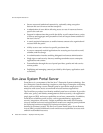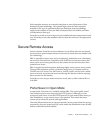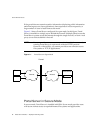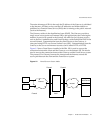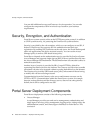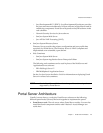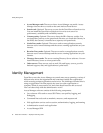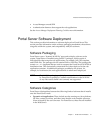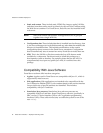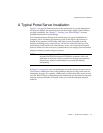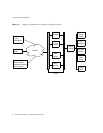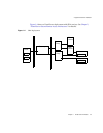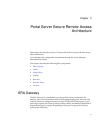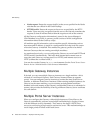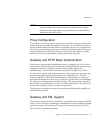
Portal Server Software Deployment
32 Portal Server 6 2005Q1 • Deployment Planning Guide
• Static web content. These include static HTML files, images, applet JAR files,
and other items that can be served up directly by the web server without using
the Web Server container. For Portal Server, these files are also installed in the
web server.
• Configuration data. These include data that is installed into the directory, that
is, the Access Manager service definitions and any other data that modifies the
directory at installation time. This includes modifications to the console
configuration data to connect in the Portal Server extensions. Configuration
data is installed only once no matter how many Portal Server nodes there are.
• SDK. This is the JAR file or files that contain the Java APIs that are made
available by a component. Developers need to install this package on a
development system so that they can compile classes that use the API. If a
component does not export any public Java APIs, it would not have this
package.
Compatibility With Java Software
Portal Server software falls into three categories:
• Applets. Applets used in Portal Server are compatible with Java 1.1, which is
supported by most browsers.
• Web applications. Web applications are intended to be compatible with the
Java 2 Enterprise Edition (J2EE™) web container based on the servlets interface
except where uses of special interfaces are identified. This includes
compatibility with Java 2 and later.
• Stand-alone Java processes. Stand-alone Java software processes are
compatible with Java 2 and later. Some Portal Server software, specifically in
SRA, use Java™ Native Interface (JNI) to call C application programming
interfaces (APIs). These calls are necessary to enable the system to run as the
user
nobody.
NOTE Static web content and dynamic web applications are all grouped
together into a single WAR file.



